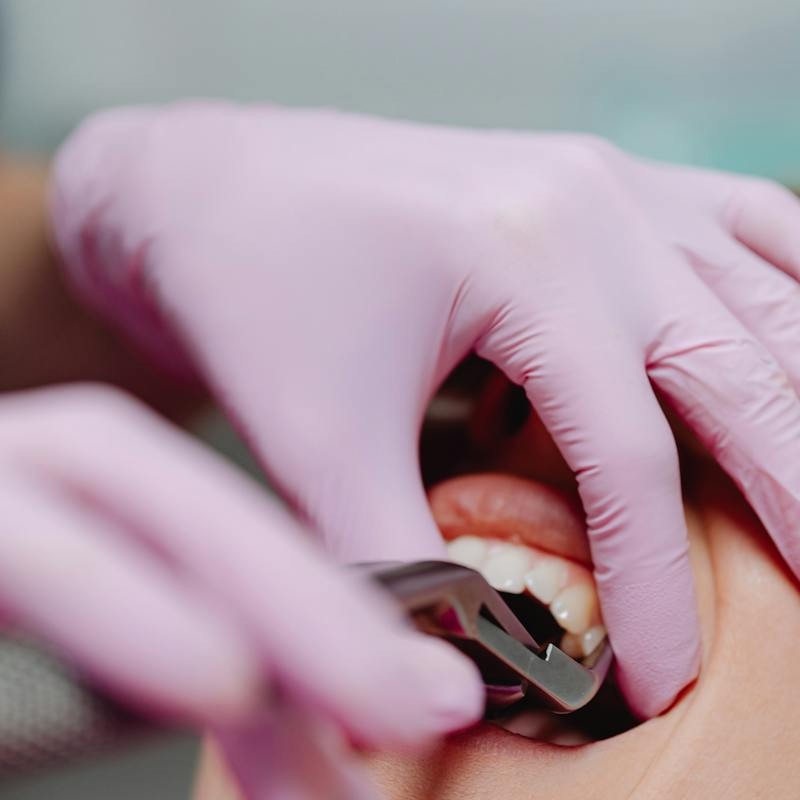Experiencing pain in your molars when you bite down can be a distressing and disruptive issue, impacting your daily life, particularly when eating. This type of dental discomfort can arise from various sources, ranging from direct tooth problems to broader oral health conditions, including jaw joint issues. This article will explore common dental and non-dental reasons that could be causing your molar pain when biting, and guide you on when to seek professional dental care. Let’s delve into the potential causes.
Dental-Related Causes of Molar Biting Pain
Tooth Decay and Cavities in Molars
Tooth decay is a leading cause of pain when biting down, especially in molars which are used extensively for chewing. Decay happens when the enamel, the hard outer layer of your molar, is eroded by acids produced by bacteria in plaque and tartar. This erosion leads to cavities, small holes in the molar that can deepen over time. When you bite, pressure is applied directly to these weakened areas and exposed nerves within the cavity, resulting in pain. This pain can be sharp and sudden, and often intensifies when consuming hot, cold, or sweet foods and drinks. If you suspect tooth decay might be the cause, it’s important to consult your dentist promptly for evaluation and treatment.
Dental Abscesses Affecting Molars
A dental abscess is another significant cause of molar pain when biting. An abscess is a pocket of pus that develops in or around a molar due to bacterial infection, often stemming from untreated tooth decay or gum disease. When biting down, pressure on the molar can aggravate the abscess, causing intense pain. A dental abscess is considered a dental emergency. If you suspect you have a molar abscess, especially if accompanied by symptoms like fever, swelling, or a general feeling of being unwell, seek immediate dental or medical attention. The infection can spread if left untreated, potentially requiring antibiotics and urgent dental intervention.
Cracked or Fractured Molars
Cracked or fractured molars are also frequent culprits behind biting pain. These cracks can occur due to various factors, such as biting down on hard objects, trauma to the mouth, teeth grinding (bruxism), or even natural wear and tear over time. A crack in a molar may not always be visible to the naked eye, but it can cause considerable pain when pressure is applied, such as during biting. The pain from a cracked molar is often sharp and may only occur when biting in a specific way or on certain foods. If you suspect a cracked molar, a dental examination is crucial to diagnose and treat the issue effectively, preventing further damage or infection.
Non-Dental Factors Contributing to Molar Biting Pain
Temporomandibular Joint (TMJ) Disorders and Molar Pain
Temporomandibular Joint (TMJ) disorders affect the joint connecting your jawbone to your skull. Problems with the TMJ can cause pain that radiates beyond the joint itself, often being felt in the molars when biting. TMJ disorders can lead to a variety of symptoms including pain in the jaw joint, clicking or popping sounds when moving the jaw, difficulty fully opening your mouth, and even referred pain to your molars that worsens when biting. These disorders can be caused by factors like arthritis, jaw injuries, teeth grinding, or stress. If you experience these symptoms along with molar pain when biting, a TMJ disorder could be contributing to your discomfort.
Bruxism (Teeth Grinding) and Molar Sensitivity
Bruxism, or teeth grinding, is a habit that can significantly contribute to molar pain when biting down. Often occurring unconsciously, especially during sleep, bruxism involves clenching and grinding your teeth. This constant pressure puts excessive stress on your molars and jaw muscles, leading to pain and sensitivity. Over time, bruxism can also wear down the protective enamel of your molars, making them more sensitive and prone to pain when biting and chewing. If you suspect you grind your teeth, especially if you wake up with jaw pain or headaches, bruxism could be the reason for your molar pain when biting.
Impacted Wisdom Teeth and Pain in Adjacent Molars
Impacted wisdom teeth, the last set of molars to erupt, can also cause pain in your other molars when biting. When wisdom teeth don’t have enough space to emerge properly, they become impacted. They may grow at an angle and push against the adjacent molars, causing pressure, discomfort, and pain, particularly when biting or chewing food. This pressure on the roots of adjacent molars can manifest as pain that feels like it’s originating from those molars themselves when you bite down. If you are experiencing molar pain and are in the age range for wisdom teeth eruption (late teens to early twenties), impacted wisdom teeth could be a possible cause.
Diagnosing the Cause of Your Molar Biting Pain
To pinpoint the exact cause of your molar pain when biting down, a comprehensive dental examination is essential. Your dentist will conduct a thorough assessment, which typically includes:
- Visual Examination: A careful inspection of your molars and surrounding gums for visible signs of decay, cracks, or gum disease.
- Dental X-rays: X-rays provide a clearer view of what’s happening beneath the surface, revealing cavities, abscesses, bone loss, or impacted wisdom teeth that are not visible to the naked eye.
- Sensitivity Tests: Your dentist may perform tests to check the sensitivity of your molars to pressure, temperature changes (hot and cold), and sweetness, helping to identify issues like enamel erosion or nerve damage.
- Gum Examination: Assessing the health of your gums to rule out gum disease as a contributing factor to your molar pain.
- TMJ Assessment: If TMJ disorder or bruxism is suspected, your dentist will evaluate your jaw joint function, range of motion, and listen for clicking or popping sounds. In some cases, referral to a TMJ specialist may be recommended for further evaluation.
Treatment Options for Molar Pain When Biting
The treatment for molar pain when biting depends entirely on the underlying cause identified through diagnosis. Common treatment approaches include:
- For Tooth Decay and Cavities in Molars: Treatment involves removing the decayed portion of the molar and filling the cavity with a dental filling. In more severe cases where the decay reaches the pulp (nerve) of the molar, a root canal procedure may be necessary to remove the infected pulp and save the tooth.
- For Cracked or Fractured Molars: Treatment varies depending on the severity and location of the crack. Options range from dental bonding to repair minor cracks, to placing a dental crown to protect and strengthen the molar. If the crack extends into the pulp, root canal therapy might be required. In severe cases where the molar is irreparably damaged, extraction may be the only option.
- For TMJ Disorders: Treatment for TMJ disorders is multifaceted and may include bite guards to alleviate pressure on the joint, physical therapy to improve jaw function and reduce pain, medications for pain relief and muscle relaxation, and in rare, severe cases, surgical intervention.
- For Bruxism: The primary treatment for bruxism-related molar pain is a custom-made night guard. This appliance is worn during sleep to prevent teeth grinding and clenching, protecting the molars from excessive pressure. Stress management techniques and muscle relaxants may also be recommended to reduce bruxism.
- For Impacted Wisdom Teeth: Extraction is often the recommended solution for impacted wisdom teeth causing pain in adjacent molars. Removing the impacted wisdom tooth eliminates the pressure on other molars and resolves the associated pain.
When to Seek Immediate Professional Dental Help for Molar Pain
It is crucial to consult with your dentist as soon as possible if you are experiencing persistent molar pain when biting down. Early diagnosis and appropriate treatment can prevent the problem from worsening, alleviate pain, and preserve your oral health. Seek immediate dental care if your molar pain is:
- Severe: Intense pain that significantly impacts your daily activities.
- Persistent: Pain that does not subside or worsens over time.
- Accompanied by Swelling: Swelling in the gums or face around the painful molar.
- Associated with Fever: Fever or chills, which could indicate an infection.
- Shows Signs of Infection: Redness, pus, or a foul taste in your mouth.
The Bottom Line
Ignoring molar pain when biting down is not advisable, as it is often a symptom of an underlying dental or oral health issue. Understanding the potential causes and seeking prompt professional dental advice are key steps in maintaining your oral health and overall well-being. Regular dental check-ups and cleanings are also vital for early detection and prevention of dental problems that can lead to molar pain. Remember, proactive dental care is essential for a healthy, comfortable, and pain-free smile.

